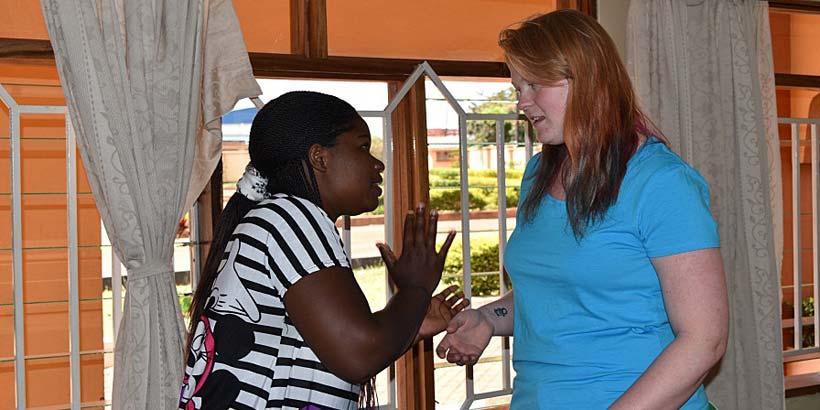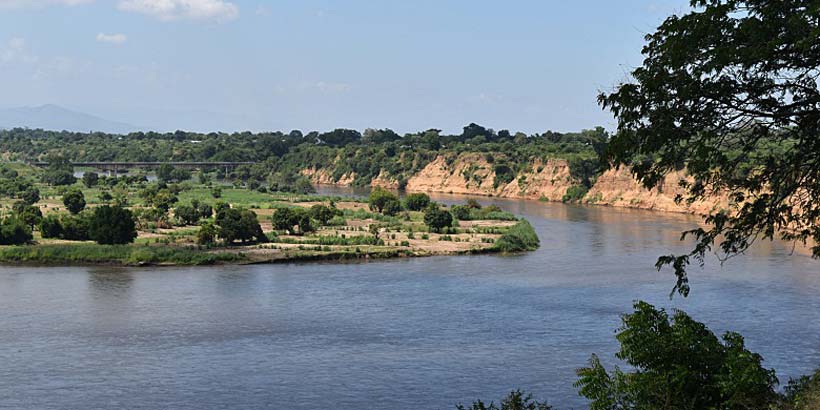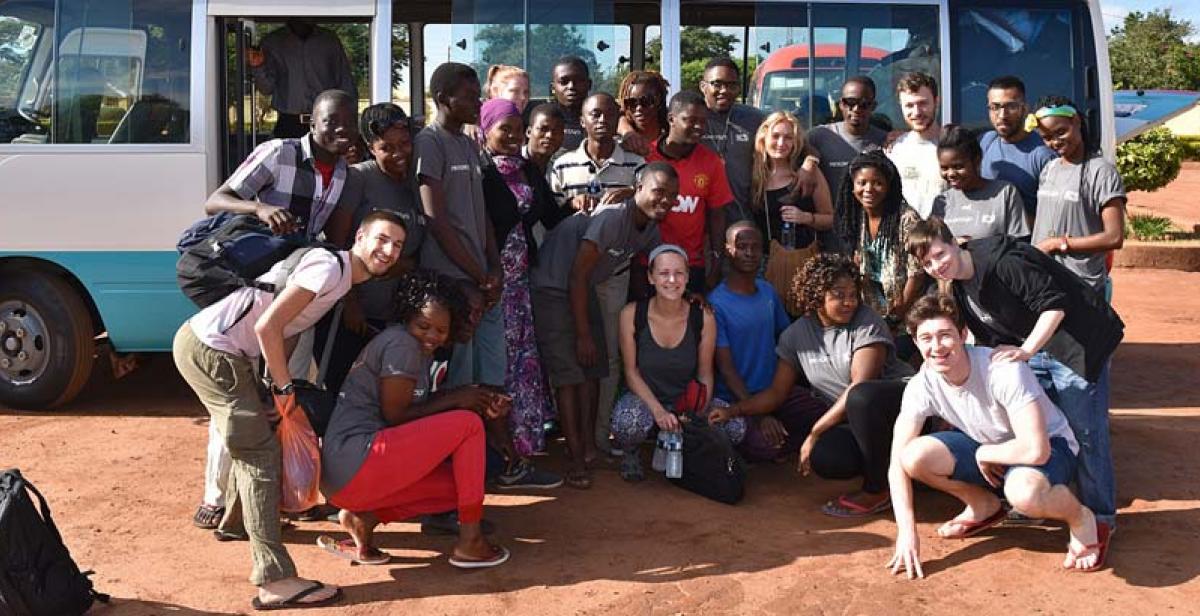UK volunteers’ journey…
Our journey began at Terminal 2, Heathrow on 17 April. A group of nervous young adults gathered with their bags waiting to board flight ET2701 to Lilongwe via Addis Ababa, Ethiopia with DEET spray in hand and passport at the ready. We hadn’t seen each other since the training weekend back in March so it was great to see everyone’s shining faces again.
Fast forward about 12 hours and we had arrived, greeted by pure blue skies and tropical like surroundings at the airport. We spotted in the distance the frantic waving of whom we assumed to be our team leaders. Moments later we were reunited with Jess, Alice and met for the first time, Emily, the third UK team leader who we had not previously met as she was already busy with work here in Malawi with the previous cycle. After loading numerous bags into the van and introductions to national Team Leaders, Shammah, James and Peter, we were off cruising down the Lilongwe highway! After a brief pit stop for lunch (K3000/GBP4.6 per meal) we were on our way to the lodge to meet the national volunteers.
National volunteers’ journey…
It was on Saturday 18 April and all national volunteers working under local partner organisation COWLHA started their journeys from their respective homes at 5.30am. At Dyeratu, we boarded a bus to Wenela Blantyre. We arrived at Wenela at 6.15 and we boarded another bus to Lilongwe. It was a nice journey and the bus was good and the music they played was great for us to listen to! We arrived in Lilongwe at 11.45am. We reached Messa’s lodge early, which was good for us because we could have a rest, but unfortunately no UK volunteers had arrived yet. All the team leaders were at Kamuzu International Airport (KIA) to welcome our UK volunteers to the warm heart of Africa.
After some hours, all UK volunteers and the team leaders arrived at the lodge. We had some introductions to the UK volunteers.
The journeys collide…
We stepped off the bus and were greeted by our fellow Malawian volunteers with name exchanges and introductions. The evening was pretty chilled out and calm as we were all shattered from our long travel to our final destinations. This meant some food and an early night, ready for our first week to begin in Malawi.
Our first day was a Sunday and we spent it bonding with each other. This included a trip to the great Lake Malawi - the largest body of water in the country and a sight you just have to see and experience when in the country. This day was great as it was our first full day as a combined group and we shared both British and Malawian games after a delicious lunch. What really amazed the UK volunteers was how vast the lake really was, the warmth of the water and the tide waves which made us feel like we were at a coastal beach location.

With Sunday done, Monday was when the hard work would really begin. Progressio representatives, Godwin, Adriano, and language teachers Austin and Shupe, introduced themselves to us and again welcomed us to the programme. We had four days to cover a lot of information before going into our host homes.
This included learning info about Malawian culture: the different tribes that people descend from; geographical information including various cities and districts; climate variations throughout the year between northern and southern regions; health and safety issues such as malaria and dehydration; host family expectations, e.g respecting the family home and rules such as no drinking or smoking in the family home and curfews.
This was a lot of information, but what the UK volunteers really benefitted from were Austin’s language lessons in Chichewa. This is the dialect that is most widely spoken throughout Malawi and specific to Chikwawa. If you thought school language lessons were hard, try learning multiple tenses of a completely new language in three days! Hard work, but very rewarding, and without the help of our national volunteers we would not know any Chichewa at all! We were told that being able to greet fellow Malawians and say some basic phrases would get us a long way as it is a sign of respect and the best way to build positive working relationships - something we were all keen to do.
As well as formal lessons teaching language and cultural differences, a lot of the learning was done informally through socialising. We learned to play Bawo, the national board game involving stones and a lot of forward thinking, and we also learned to love the national dish NSIMA!! Made from maize flour into a sticky paste-like substance, it is the staple food and goes with absolutely everything including the pumpkin/turnip leaves, meat dishes and eggplant.
Before leaving, we had the opportunity to catch a minibus into the centre of Lilongwe (capital city) to grab some things we might have forgotten to bring or essentials we would need such as Airtel sim cards which have free facebook… something that was welcomed by all the Brits. The girls also bought a chitenje (piece of material) each as this is what is traditionally worn by women in communities for modesty and practical reasons. The city was very busy and quite intense, people everywhere with wares to sell and places to go, but once we were done, we flagged down a taxi, crammed in and made our way back to the lodge.
What a first week it had been! We had taken in so much new knowledge that we would be using for our placements and were ready to go! We packed our bags (again!) and put them into the bus, ready for the teams to go their separate ways to their respective areas of work.

The journey to Chikwawa was long as we travelled via Mulanje but it was well worth the wait. The great Shire River, framed by the beautiful landscape astounded us as we commenced down the steep, winding roads that lead into the Chikwawa district as night began to fall. The rise in temperature was noticeable as soon as we reached the bottom of the valley and the UK volunteers got a small taste of what temperatures could be like - hot!
Upon reaching the COWLHA office, we were welcomed by Miss Mbandambanda and our host parents who would be looking after us for the duration of our placement. Whilst the national volunteers went back to their respective homes, the UK volunteers were taken by car to their host parents’ homes. What a strange feeling we had. We were going to live with people whom we had never met before and came from a completely different culture. It was a mixture of nervousness and excitement but we were ready!
Tionana!
Written by ICS volunteers Mica Anthony and Clement Kapinya



